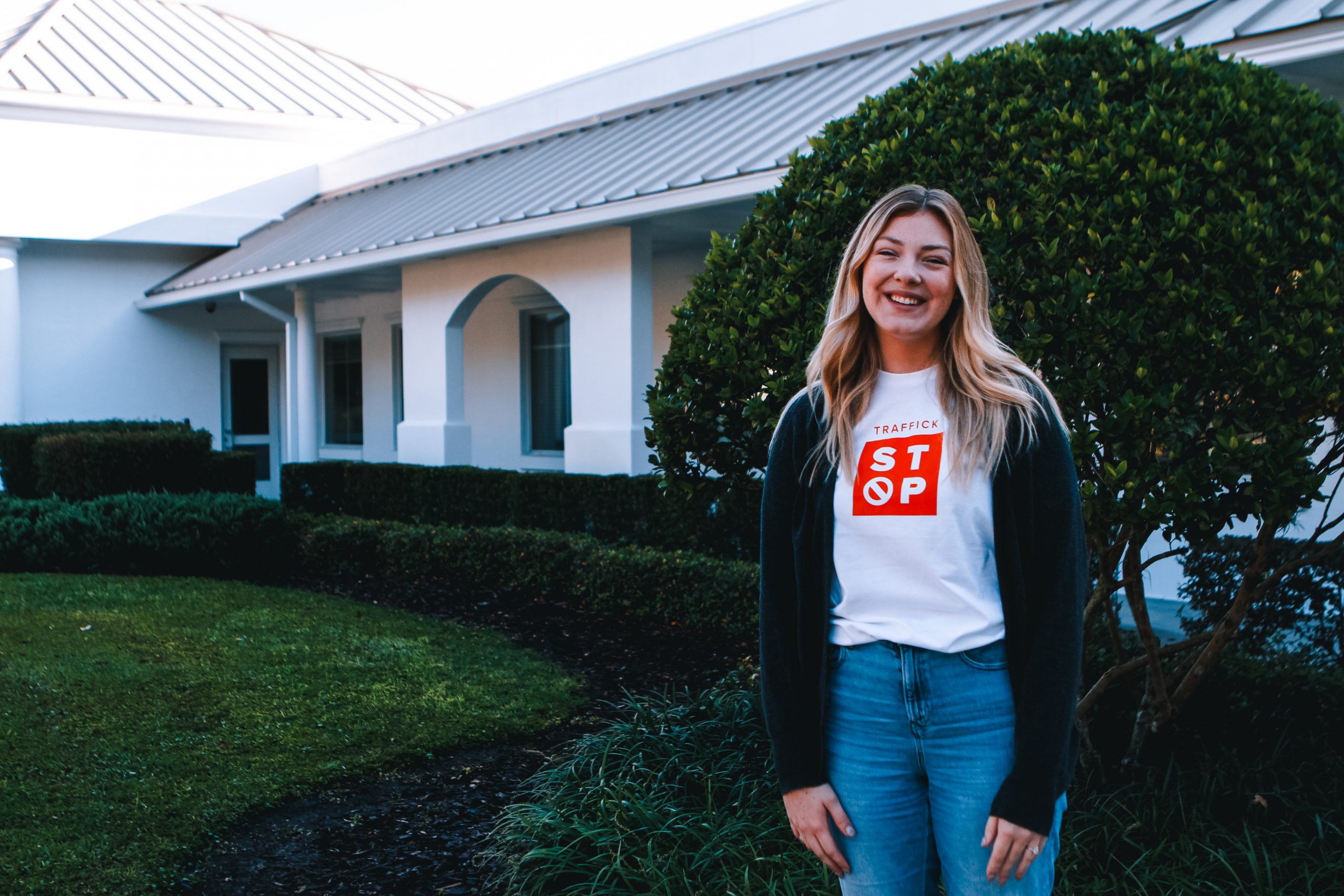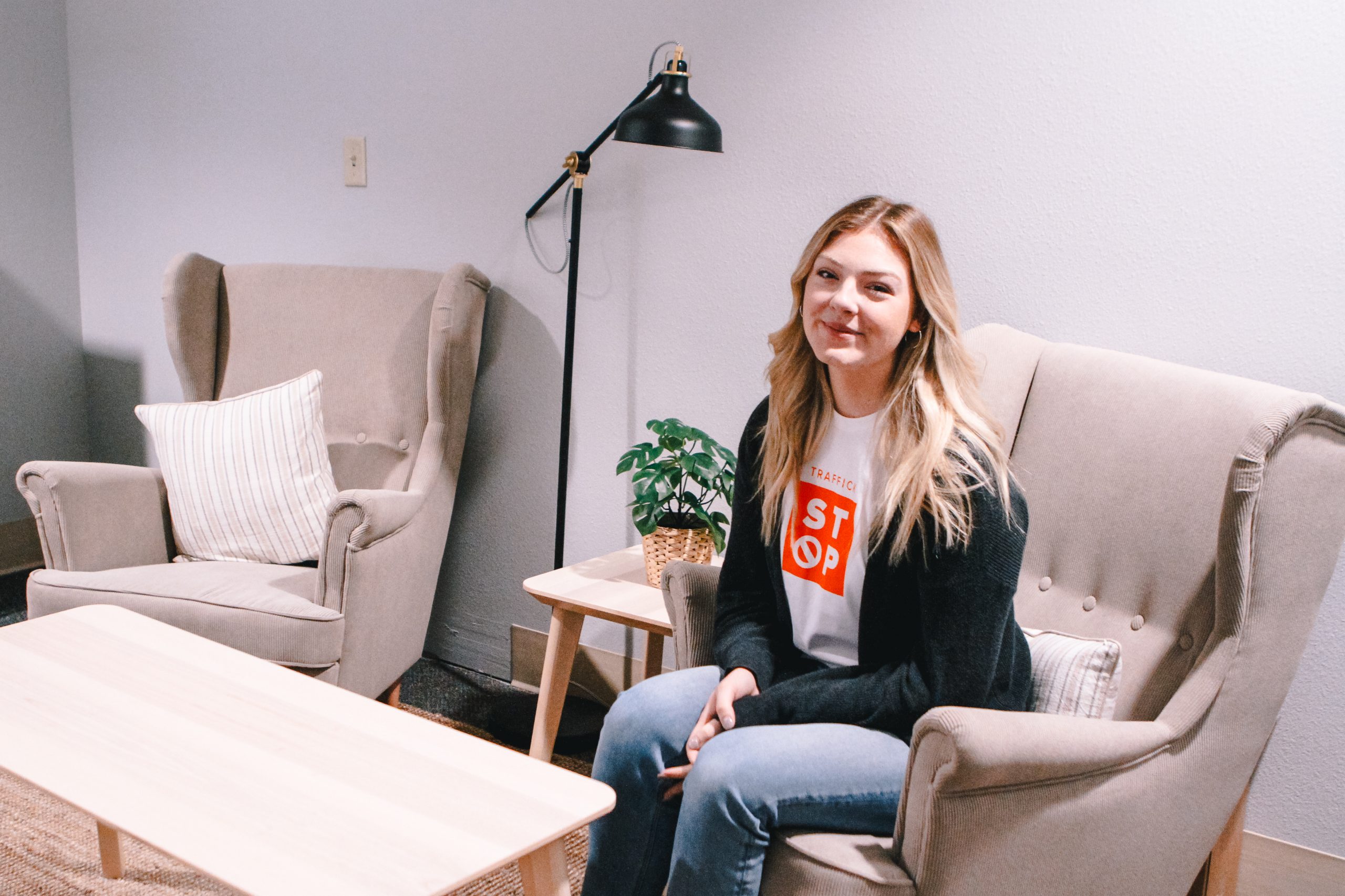One More Child
by: FOR Orlando
The vision of One More Child is to bring hope through Christ-centered services to vulnerable children and struggling families, and to show that the love of Jesus changes lives. Last year, One More Child had the privilege of serving 324,467 children through their Foster Care, Anti-Trafficking, Child Hunger, Single Moms, and Family Support programs. Whether it’s providing clean diapers to a newborn baby, food for a hungry child, safety for an abused child, or foster or adoptive homes to children in crisis, they work to share with children who have been abandoned, neglected, or abused the healing love of Jesus. Check out our conversation with Olivia below to learn more about One More Child.
Olivia
Anti-Trafficking Team Coordinator, One More Child
 I feel like I always knew that I wanted to get into social work, but I thought I was too soft because I have a very empathetic heart. But I’ve learned that that’s a strength in social work and in this field so I’m glad I ended up here. As an empathetic person, there’s a justice that you are seeking and wanting and fighting for. So even though I’m empathetic and soft with survivors, I also have this burning justice that I want for them too.
I feel like I always knew that I wanted to get into social work, but I thought I was too soft because I have a very empathetic heart. But I’ve learned that that’s a strength in social work and in this field so I’m glad I ended up here. As an empathetic person, there’s a justice that you are seeking and wanting and fighting for. So even though I’m empathetic and soft with survivors, I also have this burning justice that I want for them too.
I applied for my job at One More Child totally unqualified. I just wanted to help people. I love the fact that One More Child is a Christian organization. I think it’s so important when we’re working with people and like healing their hearts that Jesus is involved in it. We’re trying to make sure that each piece of the healing process of a trafficking survivor is partnered with somebody that can help them, even spiritually. I like to emphasize that One More Child is not trying to save anybody, but we provide resources for people to recognize their story and save themselves.
One More Child covers ages zero to 28. We have clients that are as young as eight right now and then we do go all the way up to 28, children, men, and women. The job of an Advocate sometimes includes going to court with survivors, it could look like researching housing opportunities or scholarships. It also looks like educating our community and doing human trafficking and trauma-informed care trainings. We’ve even trained prosecutors on working with survivors and better understanding the trauma that comes from it. We also have free counseling for survivors that’s trauma-informed and trafficking-specific. It’s important to be mobile and be able to bring services to survivors, so they’ll do therapy sessions in McDonald’s, libraries, in people’s houses, and in foster homes. Our Survivor Mentors do things like wellness plans and safety plans and life skills with survivors. Some survivors have never learned how to cook a meal for themselves or create a budget or know what it looks like to have daily hygiene. Survivor Mentors teach those very practical things.
The hardest thing is that we can’t help but love our clients. Their trauma is personal to me, and I feel connected to their stories. When they hit roadblocks or they stumble and I can’t do anything immediately to help them, I just have to sit there and listen to their like struggle or their frustration and I can’t do anything. That’s a challenge. But it’s so special to get to be in a position where we don’t just talk about what anti-trafficking is – that we get to do it and be the hands and feet of Christ in courtrooms and supporting survivors as they’re crying and understanding their story. It’s not just a desk job or just education. It’s all of the other things that come with it too.
In each area where we provide services, we have what we call drop-in centers. The hope is that they’ll be used for survivors that want a safe space to get some information about what trafficking is, or they just need space to sit and apply for jobs or talk to somebody that’s not judgmental. Some of our drop-in centers have spaces where they can do laundry or clean up in a private bathroom. It’s a space where it’s safe for them to come with no pressure, no judgment, and just kind of be themselves and relax a little bit.

Olivia in First Orlando’s Drop-In Center
I actually am a survivor, and I have some trafficking history myself. But I didn’t know at the time that what happened to me even was trafficking because I don’t look like a “normal” survivor or like what I saw on the human trafficking posters. I didn’t identify as one. In my story, I thought I was making these choices myself, but really I was being gaslit and manipulated by another person. So I started in this job seeing some similarities between myself and the work, and as I’ve gotten more into this role, I’ve even understood myself and my story more, which has been really neat.
People often think that trafficking is like the movie Taken, but it’s not just like that. It’s not always that you’re being moved across the country or that it’s just a third-world issue. It’s totally those things, but it’s also things like sextortion and online exploitation, and sometimes it happens with significant others or people you know. I went to college, I was a Division I athlete, I look very normal, people would never think that I was trafficked. I think that’s important for people to know. That trafficking can look like your neighbor.
I love that I get to be somebody that says my story isn’t the ‘Taken’ story. It allows me to advocate for more normalcy around what somebody who’s been trafficked looks like. I can explain to people that it could be your neighbor, your cousin, anybody. I think God is really cool in how He puts us in positions for such big reasons.
If you or someone you know is a victim of trafficking, call the National Human Trafficking Hotline: 1-888-373-7888
To learn more about recognizing the signs of Human Trafficking, click here. To learn more about how One More Child is fighting trafficking, click here.
